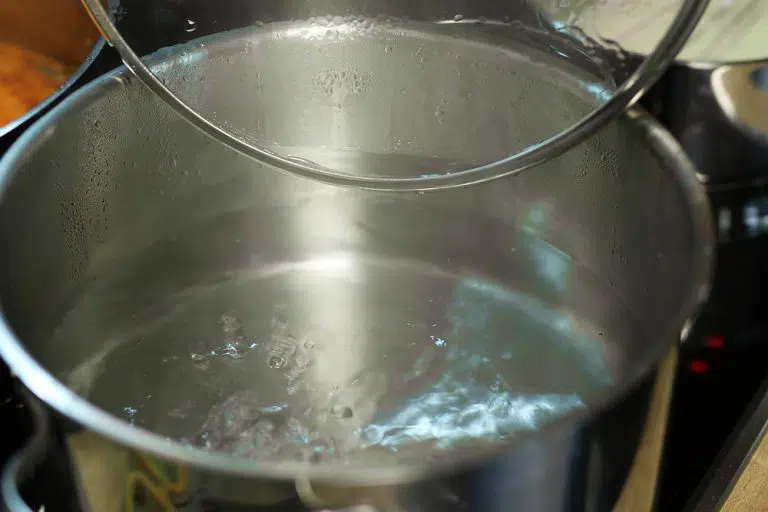The windowsill, conservatory or other places with tub or potted plants enrich the home and even serve many people as a substitute for the non-existent garden. Besides occasional fertilizing and pruning, watering is probably the biggest effort in dealing with the plants. But which water is the right one? Can boiled water be used, or will it even harm the plants?
Contents
Boiled water and its properties
At the outset, the first question that certainly arises is what is so special about boiling the water intended for pouring. By heating the water above the boiling point, two main effects are achieved:
disinfection
The heating process kills pathogens contained in the water, especially bacteria and other microorganisms, with a high degree of reliability.
decalcification
Lime, which is always present in normal water to a greater or lesser extent, is not destroyed by the boiling process. However, it flocculates in the water during the cooling process and settles at the bottom of the container. Heated irrigation water is thus not completely freed from lime, but it is considerably less limey than any form of “untreated” tap water.
Harmful or beneficial?

If you consider the effect of boiling water in a very clear way, it quickly becomes clear that there is little reason to fear any adverse effects from the water treated in this way. The reasons for this are obvious:
less risk of disease
By largely eliminating pathogens in the water, this transmission path is virtually eliminated. Since rain, wind and migrating animals living on the plants are also unlikely to play a role as further carriers of pathogens within closed dwellings, the use of boiled water can reduce the risk of plant diseases to a minimal residual risk.
full nutrient supply
Since by watering, apart from liquid, one mainly supplies minerals, this supply is not impaired in any way by boiling the water. Organic substances, on the other hand, which are more easily damaged by heat, are usually obtained from the soil or fertilizer added to it.
less impairment by lime
In addition to preserving nutrients during the boiling process without reducing the dose, boiling even has another positive effect on the supply of plants. Lime can noticeably impair the absorption of various elements by the plant organism. If the amount of lime supplied through the water is reduced, the disturbance of the nutrient cycle is also minimized. Thus, compared to non-boiled water, the same water in boiled form has a significantly more positive effect on the supply of the plants watered with it.
Attention: Although it should go without saying, we would like to point out once again that the water should be cooled down to room temperature after boiling. Hot water can damage the plant’s root system and also destroy organic nutrients stored in the soil. In addition, the settling of flocculated lime from the water may take place as part of the cooling process.
Boiled water necessary for these types of flowers
So, overall, the use of boiled water is quite advantageous for watering houseplants. However, there are also various types of plants for which it is even expressly recommended to use only such pre-treated liquid. It is true that these plants do not react differently to dissolved lime than other plants. However, the dose at which the adverse effect occurs is much lower. Common examples of plant species that are particularly sensitive to lime are:
- Azaleas
- Ericas
- Ficus Benjamini
- Camellias
- Myrtles
- Other bog plants
- African violets
- Poinsettia
Tip: If you have the opportunity to collect rainwater, for example, on the balcony or a patio roof, you can also use this wonderfully in place of the costly boiled water! Due to the previous evaporation of the water before it falls back to earth as rain, the same effect of decalcification is achieved
Boiled equals distilled?
Again and again you read about distilled water in addition to boiling. Never confuse these two related processes! While boiling heats the liquid water to over 100 degrees Celsius, distillation captures the rising water vapor and condenses it again. However, since the steam cannot transport nutrients, distilled water no longer has any traces of lime, but just as little of nutrients! While boiled water is clearly beneficial for your plants, by using distilled water you will harm them in the long run by depriving them of salts and other essential minerals.


